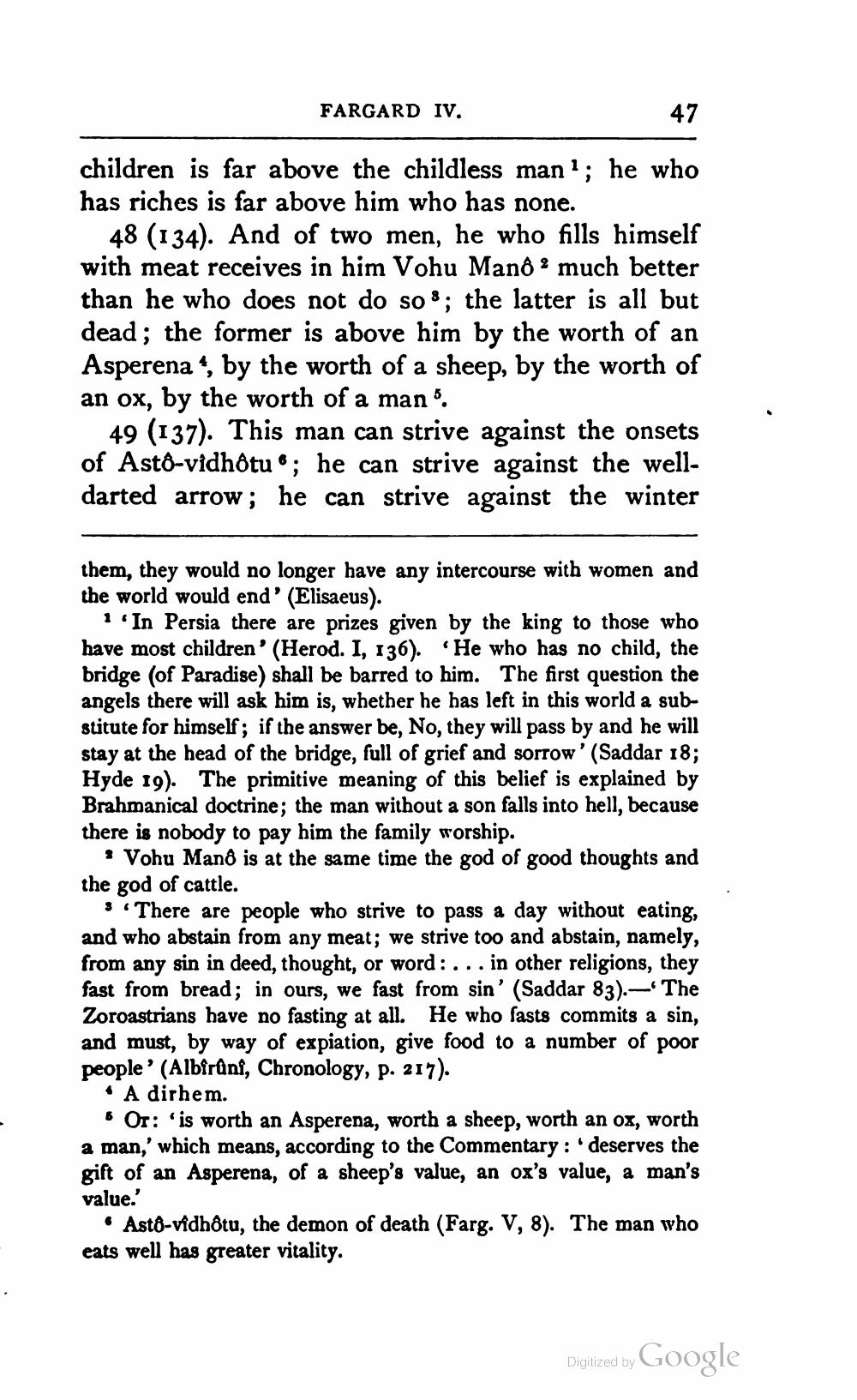________________
FARGARD IV.
children is far above the childless man; he who has riches is far above him who has none.
48 (134). And of two men, he who fills himself with meat receives in him Vohu Mano ? much better than he who does not do so 8; the latter is all but dead; the former is above him by the worth of an Asperena“, by the worth of a sheep, by the worth of an ox, by the worth of a man'.
49 (137). This man can strive against the onsets of Astô-vidhôtu 6; he can strive against the welldarted arrow; he can strive against the winter
them, they would no longer have any intercourse with women and the world would end' (Elisaeus).
1.In Persia there are prizes given by the king to those who have most children' (Herod. I, 136). "He who has no child, the bridge (of Paradise) shall be barred to him. The first question the angels there will ask him is, whether he has left in this world a substitute for himself; if the answer be, No, they will pass by and he will stay at the head of the bridge, full of grief and sorrow' (Saddar 18; Hyde 19). The primitive meaning of this belief is explained by Brahmanical doctrine; the man without a son falls into hell, because there is nobody to pay him the family worship.
· Vohu Manô is at the same time the god of good thoughts and the god of cattle.
S'There are people who strive to pass a day without eating, and who abstain from any meat; we strive too and abstain, namely, from any sin in deed, thought, or word:... in other religions, they fast from bread; in ours, we fast from sin' (Saddar 83).— The Zoroastrians have no fasting at all. He who fasts commits a sin, and must, by way of expiation, give food to a number of poor people' (Albfråni, Chronology, p. 217).
• A dirhem.
• Or: 'is worth an Asperena, worth a sheep, worth an ox, worth a man,' which means, according to the Commentary : deserves the gift of an Asperena, of a sheep's value, an ox's value, a man's
value.'
• Astô-vidhôtu, the demon of death (Farg. V, 8). The man who eats well has greater vitality.
Digitized by Google




